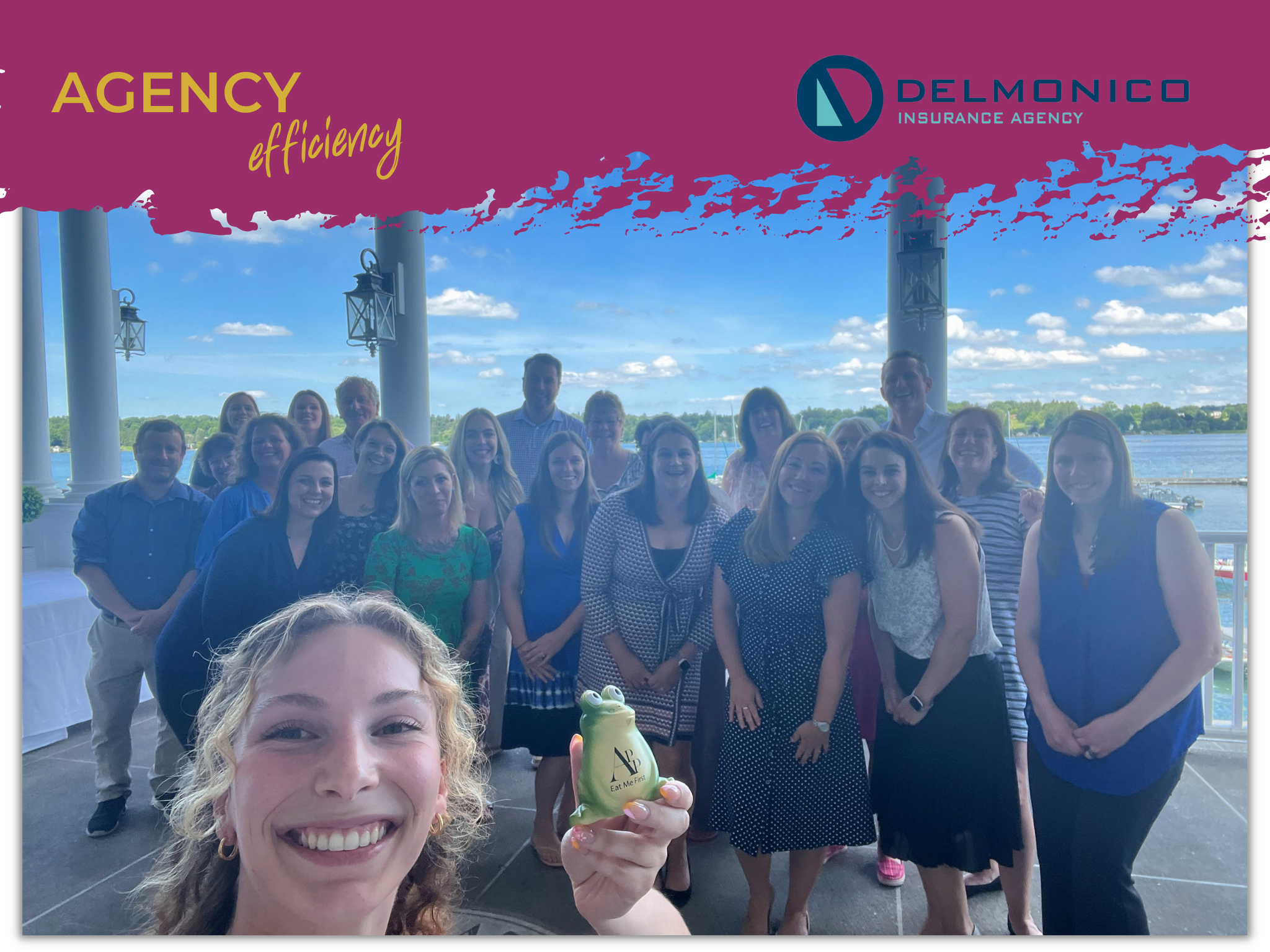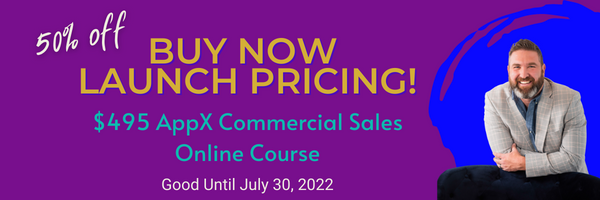Introduction
Your time is money and you may need some guidance on time management for insurance agents, especially for your commercial insurance producers! Literally, cash money, coin, cha-ching!
In order for a commercial producer to reach their potential, they must learn how to manage their biggest asset: time.
If you want to grow your book, you simply must make time for:
- Prospecting
- Quoting
- Following Up
- Nurturing Current Customers
One isn’t more important than the other. Additionally, you’ll want to make time for education, sales meetings, and updating your pipeline.
One common challenge many sales professionals face is the discipline to do the work that you would rather put off. Commercial producers often avoid paperwork or cold calling because there’s always something else that you’d rather spend time on. This is avoidance and it could be detrimental to your production. If you are managing commercial producers, this is something for you to be on the lookout for.
The million-dollar commercial insurance producers have the discipline to consistently focus on the tough tasks. The producers that never seem to reach their potential are chasing their tails and focus on the shiny object of the day.
If you’re looking to maximize your insurance sales potential, this blog will help you consistently manage your time and level up your income. Let’s get started on discussing time management for insurance agents. But first a quick update from the APP Team!
Agency Performance Partners Update
Travels from Kelly & Heath 7.2.22-7.8.22
Kelly was in Skaneateles, NY with Delmonico Insurance launch them on the Agency Efficiency Program. It was a beautiful day to give up notepads! Heath Shearon was in Oklahoma City with Aarvin Insurance getting them ready for Agency 2.0!


Where is APP this week?
Kelly & Heath will be joining forces in Albany, Georgia for an Agency 2.0 Launch & Commercial Producer Training
Time Management For Insurance Agents – Commercial Producers
Watch as we explain the top time management challenges for insurance agents in this solo podcast!
Time Management Traps for Commercial Insurance Producers
In our work with hundreds of agencies, we’ve been able to observe and identify the top traps in time management for insurance agents that commercial producers face. If any of the following sounds familiar, don’t worry, you aren’t alone. These are common, and now is the time to re-evaluate your approach.
As we review these challenges, we’ll provide clear actionable solutions to help you master your time and sell more insurance.
- Chasing prospects who aren’t the best fit: A lead is a lead, but producers can be like a dog with a bone. We get so caught up in the sale that we’re not thinking clearly. Many producers don’t walk away from an opportunity that looks like garbage. This is because there’s a lot of gray area. A few examples include:
-
- You receive a referral from a good client, but the prospect is not a good fit, yet you feel obligated.
- You receive a lead that looks good, after underwriting, it’s questionable, but you’ve already spent time on it.
- You’re low on your sales goal for the month, so every lead is critical and thus gets chased.
- You haven’t had commercial insurance producer sales training to understand what to walk away from.
- Prospecting only when you need to: This is what we call a roller-coaster producer; there are a lot of “ups and downs.” The reality is that every single prospecting call is a lottery ticket: you can’t win if you don’t play. When you consistently prospect, you pick and choose what opportunities to pursue.
- Service work will always find you:
- Create boundaries with your clients.
- Learn to better trust your service team: Building relationships with the servicing team will strengthen your skills in time management for insurance agents. Think of your servicing team as a client that you’ll want to nurture.
- Your sales targets are too small: We see many producers going after smaller accounts because it’s low-hanging fruit. However, this could also be identified as an “avoidance strategy” because of the activity most despise: cold calling. Hunting producers identify a minimum revenue account to focus on. When you say “yes” to a smaller account, you’re saying “no” to prospecting your ideal client.
- Not embracing technology: As a producer, you may be on the road a lot. Even still, you must embrace technology! Being on the road doesn’t mean the technology is elusive. When you’re working on the road, focus on email templates, digital notepads, audio-recording apps, and more that will keep you organized to minimize tedious office paperwork later.
- Launching into your week without a schedule: If you have no plan for your week, you won’t win. You’ve indirectly adopted “hope” as a strategy. Taking time, every week, to plan your week means you’ll schedule your most important tasks, such as prospecting and follow-up! Without a plan, you’ll chase fires and servicing tasks and feel like you don’t have time to meet new opportunities.
Most commercial insurance producers face all or some of the aforementioned challenges. Mastering all of them will lead to reaching your potential! Let’s move into solutions on how to master your time.
Chasing Prospects Who Are Not a Good Fit
Watch our 3 Minute Video On Producers Chasing the Wrong Prospects
It happens, and we’ve all been there. A good customer sends a referral that’s not a good lead. Can you say awkward? You feel obligated to take care of a referral, but you’re now hours into finding a great carrier for a start-up company that’s an underwater basket weaving dynamite broker. You knew this would be near impossible, but you dove in anyway to look favorable for your good client.
Rather than professionally decline it, we fight to find a market, with whom we must get appointed for one small policy. Let’s recap:
- A nearly impossible account
- Finding a new market
- Getting appointed with said new market
- No backup market as an alternative
To add insult to injury, you’ll also face the fact that the service team doesn’t have a login to help service the account, and there’s no commercial download into the management system, so manual entry is required. *Insert horror emoji face*
As you’re reading this, you may be saying: “I’d never do that.” But you have, we all have. Perhaps you’ve selectively deleted it from your memory as you know it was a colossal waste of time.
As a commercial insurance producer, establishing strong guidelines of what and when you walk away, is the key to not repeating this time management trap. Usually, we have no problem walking away from a complete garbage lead. However, it’s the occasional gray-area opportunities that catch us off guard.
Here are some common examples:
- A prospect who presents well early on, but as you underwrite it, you realize it’s hairier than you thought
- You’re not on track with your sales goals, so you’re desperate to work on any and all leads, even a long shot, to be busy
- You like the prospect, so you let your guard down to try to help, but know it’ll be tough to close
- As stated earlier, referrals from current customers who aren’t a fit, but you feel obligated since they’re a referral
Sound familiar? We write about this because we’ve seen it countless times, so you’re not alone.
There’s one concept that I live by: when you say “yes” to something, you’re saying “no” to something else. Successful producers stay focused so they can make time to prospect. Spending hours on a lead that’s a wild goose chase ensures you won’t have time to prospect. Do you buy scratch-off lottery tickets? If you do, you know that if you play consistently, there’s always a winning ticket you can cash in.
Solution
Clarity is kind. What does this mean? Being upfront with a prospect and informing them that you can’t help them is the kindest thing you can do! Manage this mindset: you’re in the business of writing business—not finding a home for a difficult account. Make sure if you are managing commercial producers, you have a clear guideline.
- Have clear guidelines of what you’ll write. This includes: quality accounts, revenue goals, market availability, and clients who value your expertise. When they do not meet your guidelines, no matter how big of an account it may be, you walk away.
- Practice your walk away. This builds confidence and minimizes the awkwardness because you’ve practiced it.
- When you’ve identified you’re in a gray area. When you’re qualifying a prospect, set a timer of how long you’ll invest in the process. When the timer goes off and there’s no clear home for the account, it’s time to be kind and walk away.
Become disciplined with practicing these. Your time is valuable; you want to spend it on the highest value targets.
Prospecting for Commercial Insurance Leads
Checkout our Throwback 3 Minute Video on Why Producers Hate Prospecting
If your sales look like a roller coaster, read this section carefully.
Average producers say they don’t have time to prospect. This is likely a result of being busy chasing bad accounts. Million-dollar producers prospect daily. So, what’s the difference? They’re disciplined to fill their pipeline on a daily basis, and discipline comes with the skill in time management for insurance agents. Commercial insurance has a process and a pipeline. When there’s not a lot occurring at the top of your funnel, you start scrambling. Then you take long-shot leads and the cycle continues. Stopping the sales rollercoaster only comes when you invest in commercial insurance producer sales training.
Let me ask you, as a producer, what’s more important than filling your pipeline?
At APP, with commercial insurance producers, we conduct this exercise. Imagine that the most important person (or pet), in the world to you, needs medication to live and it’s $20,000. However, you don’t have the money. What would you have done differently three months earlier if you knew this day would come?
The answer is, always, “I’d be out prospecting.” So, what aren’t you doing now that could be hindering you from reaching your potential? Buckle in, because we’re about to give you the answer and you may not like it.
The difference is….discomfort. It’s uncomfortable to prospect for many reasons. However, if and when you’re uncomfortable in your personal life, prospecting becomes a necessity. Turn this discomfort into productive activity that helps to set your schedule, manage tasks, and streamline success.
It’s a great feeling when the referrals are rolling in. However, most often, referrals are on the “hope strategy” spectrum. Hope cannot be a sales strategy. We incorporate time management for insurance agents and get those referrals in from prospecting. You need to hope to get referrals but plan to fill your pipeline.
Solution
If you avoid prospecting, more often than not, it’s time to get disciplined in your practice. Prospecting is the number-one activity that will set you apart from the average lot of producers.
Here are some tactics to adopt:
- Time block: Set a daily golden hour to make calls. This includes:
- Calling customers to generate referrals
- Calling on expiration dates
- Tip: Check out AppX Commercial Insurance Sales Training Course for a prospecting plan
- Plan networking events: Research and schedule them on your calendar ahead of time
- Block a few times per week to be out of the office: Plan it so you don’t get trapped in the office
- Set a goal: Create a weekly and daily plan for how many calls to make. Write these goals down and track them. Remember, these are lottery tickets, and they need to be scratched!
- Grab a buddy: Prospecting together is way more fun and this also creates accountability strategies
- Plan a reward: If you reach your prospecting goal, plan a reward for yourself
- Find a regular accountability partner: We all need help doing the hard things
Staying Busy with Service Work
Studies indicate that 40 percent of a commercial insurance producer’s time is spent on service. Let’s do the math; that means we have an easy way to increase sales by 40 percent,, right? We know, because we’ve witnessed that too many insurance producers aren’t proficient with managing client expectations.
This is further compounded by the often (and unnecessary) tense relationship between sales and service. This results in many salespeople diving into service work to avoid confrontation with the service team. This derails production. Period. Watch for our blog on this topic, to be released July 25, 2022!
There are many reasons that commercial insurance producers shouldn’t get involved with servicing.
Here are my top five:
- Generally, producers are horrible at it: Further, it screws up files, documentation is not great, and it leads to more work for everyone.
- Why are you working on tasks you’re paying to have done?: As a commissioned person, part of your commissions go toward servicing. Please stop diminishing your pay.
- You teach clients to contact you vs. the service team: If you’d rather be an account manager, most agencies are hiring! Turn your producer badge in since you’re doing someone else’s job.
- It’s an easy way to be needed: It’s easier to answer a call than develop a new relationship.
- You’re working below your pay grade: Why are you doing work that is often below a commissioned producer’s pay range?
Service work will always find you. When you’re operating without a planned schedule, plan for service work, because you didn’t plan properly for appropriate sales activities. This will merely enable excuses that you can’t prospect because you’re busy servicing.
This is the reality you created. The good news is that you can un-create it.
Solution
Retaining clients takes effort, but it’s possible with the right communication. Let’s train clients to go to the right team when they need something. We understand that the client is your paycheck. Trust the process and build a great relationship with your servicing team and the client.
There will be mistakes and wrinkles. Plan on it; it’ll happen even if you try to take over servicing.
Your role is played out on the field. Leave it all on the field.
- Plan your week and be out of the office: You’ll be less likely to dive into service work when you’re at appointments. If you need help with what to do out of the office, we suggest a commercial insurance sales training course.
- Build relationships with the service team: Don’t prejudge; they’re not haters. If you think of the service team as clients, you’ll lean toward building a relationship with them. Bees with honey; they may put your work to the top of the pile. Say thank you, consider gifts from time to time when they help you close a deal. Account managers thrive on recognition. It’s their contribution to a winning process for the agency and the team.
- Introduce clients to the service team: Clients may only know you! It’s hard to get service from the team when clients only have your contact information.
- When there are service issues: Talk directly to the team member and review your processes. Make sure your expectations are in alignment with the agency’s processes. If an issue continues, work with the leadership team to find a resolution.
- Track your time on service work: When you track this and acknowledge the number, you may feel differently about your approach.
Just a reminder, when you have clear agency goals, producers can adjust their time toward the right activity. Check out our recent blog on how to set goals. Check out our complimentary goal-setting calculator so you can understand how valuable your time is.
Prospecting Small Commercial Insurance Accounts
Many commercial agents scoff at personal lines, but small commercial accounts are even less profitable. If you’re going to target smaller commercial accounts, you better cross-sell for the clients’ personal lines policies too!
Add an Excess & Surplus (E&S) market account with premium financing for a $2,000 premium, the math doesn’t add up when you consider how you traded your time for the dollars earned. It gets a deal on the books that doesn’t make the agency any money.
Let’s face facts, the new business prospects who call into the agency are generally smaller, more difficult, costly (in time), and unprofitable. For this reason, you must have a proactive prospecting strategy. In order to uncover the solid accounts (who meet your established new business guidelines as mentioned above), you can’t aggressively wait for the phone to ring. You have to hunt!
Sometimes, larger accounts can be intimidating, but if we’re not challenged, we won’t grow.
Make sure you’ve clearly identified who you’re targeting. Having hope is not a strategy; you need action to earn the bigger accounts. It’s time to get out of your comfort zone and proactively target larger accounts.
APP did this two years ago. As our time got more crunched, I finally realized how to identify our ideal client and where to find them. We started creating online content for everyone on time management for insurance agents, but learned how to be super intentional when it came to individual consulting.
Solution
Let’s level it up so you can win the bigger accounts. Larger commercial insurance accounts tend to be less work, have more cohesive client/agent relationships, and be more profitable for you to reach your sales goals faster!
- Develop your sales skills: Spend time listening to podcasts and/or enroll in commercial insurance producer training courses!
- Create a Top 20 target list: Who are the 20 accounts you’d love to write? Focus on them monthly.
- Share your ideal client: Tell your centers of influence and network exactly who your ideal client is. When you broadcast it, the universe delivers. Too metaphysical? Fine, focus on tracking to show the success of your networking with specific referral strategies.
- Mitigate time-wasting activities and prospects: Be intentional with how you spend your time on non-target accounts. Track your time with those prospects. Example: Maybe go to 1-2 markets, but get off the field if the play fumbles.
- Work to cross-sell smaller accounts: In order to write smaller accounts and still make money for yourself and the agency, Get all accounts: Life, personal, commercial, three referrals….you get the gist.
- Streamline the process on small accounts: This is where embracing technology is your champion. Utilize paperless tools, enroll in automated payments, direct clients to service portals for certificates. If you’re going to write smaller commercial accounts, optimize the technology or walk away.
Want To Win Bigger Commercial Insurance Accounts?
Commercial Insurance Producers Not Embracing Technology
Technology is intended to support insurance sales. Yet, many commercial insurance producers fight using technology. While every sale is unique, using technology to assist with the sales process allows producers to be in multiple places at once. The aversion to embracing technology is often driven from fear, uncertainty, and doubt.
It feels counterintuitive, but if commercial insurance producers slow down to learn the technology, they’ll increase opportunities and mitigate servicing work that deviates from the sales process.
Every agency has different levels of how technology is used, let’s map out a few we believe that agencies could better embrace:
- CRM tools that track leads, pipeline, and closing ratios. Set reminders to follow up and follow through.
- Email templates to streamline communication tasks. This will also ensure grammar and spell-check.
- Lead-nurturing tools are often built into a sales CRM. When your contacts hear from you regularly, you increase your opportunities! Plus, this will nurture leads and increase appointments at the same time.
- Proposal software will create a professional presentation that will demonstrate your value aside from price.
- Route-planning software exists for those who have a “milk route” territory. You can prospect a certain area to be aware of potential prospects in the area.
- Social media isn’t specific to insurance, but if producers embrace this concept as a networking tool, they’ll make connections they wouldn’t otherwise have with a chance in-person (IRL) encounter.
TOP SECRET INTEL: Modern insurance sales producers have a second job: Database Manager. The vintage mentality of older producers living behind a computer, full-time, still rings true. However, they’ll still need to manage a database filled with opportunities so the agency will clearly see their activity.
For many insurance producers, incorporating new technology can be overwhelming to them. The objective is to show the value of how it’ll help make more sales! It’s not meant to slow them down; it’s meant to speed them up. It’s invaluable to introduce tools to empower their sales process.
Solution
Similar to producers selling every day, agencies need to sell producers on why technology is beneficial to them. Start with “Why!?” It’s not data entry; it’s how to efficiently nurture leads.
Here are a few tips for getting producers to embrace technology:
- Have a beta tester: This person should be open minded and tech savvy. When you roll out the new technology, you’ll have social proof and an evangelist.
- Test period prior to launching. Let them get comfortable before fully launching it.
- Make it not optional for all: Once launched, it’s not optional. Appoint an agency leader who monitors usage and addresses when producers are not compliant. This is especially critical for the top producer since many people may look up to them and look the other way.
- Consequences: If there is resistance, consider withholding commissions until an agreement is reached. This means things are not well, so let’s hope it doesn’t get to that. However, there’s a lot of time and resources wasted within the agency when this setback occurs.
- Celebrate wins: Make sure you add this to the process.
- Keep it simple: Start with launching minimal features to get the team comfortable. Then, add on something new every month or quarter. Adoption is the key to ROI. Plan for a journey when it comes to implementing technology.
Plan Your Week to Maximize Success
Watch our 3 Minute Video on the Importance of Commercial Insurance Producer Planning
A commercial insurance producer without a weekly plan is a producer without an intention to sell insurance. They use hope as a strategy. Do I sound like a broken record? You bet I do, because it’s that important.
Not having a plan leads to a:
- Roller coaster pipeline
- Selling out of desperation
- Dependence on the agency generating leads
The reality is that all personnel in your agency should have a weekly plan. Many producers reject weekly plans because they may change. This is true, but most plans can be modified. The bottom line is you have to start somewhere.
You probably have faced shiny object syndrome. You’re busy but not productive. It’s a thing. There’s a ton to do, but prospecting gets bumped off because there’s a fire that needs your attention. How?
You take on service work because you’re available or you get to the office with the intention of prospecting in the afternoon and get stuck behind your desk. All of these failures will lead you to not reach your sales goals or potential.
Maybe you’ve planned out a few weeks, but you’re not planning consistently. This isn’t a winning strategy, either. If it worked so well, why did we stop doing it? If you take 30 minutes on Friday to plan next week, this will lead to more success.
Many producers fail to plan because it feels confining or they think they’ll miss an opportunity due to a strict plan. This is not true. Even if a missed opportunity reveals itself, being consistent and strategic will result in uncovering several high-quality leads. That’s a win.
At APP, we use a weekly planner that’s submitted each week so we know what the team is focused on. It also feels really good at the end of the week to win your week, stay focused, and plan your next week!
Performance Time Management for Insurance Agents
There’s never enough time in the day. Let’s know this and get it out of the way. If you plan for success, you won’t be sidebarred with distracting activities. The day doesn’t run you; you run it!
Here’s a sample producer plan for you as a reference when you try this on your own.
| Monday | Tuesday | Wednesday | Thursday | Friday | Saturday | Sunday | |
| 6:00-7:00 | |||||||
| 7:00-8:00 | Have coffee and catch up on email | Have coffee and catch up on email | Have coffee and catch up on email | Have coffee and catch up on email | Have coffee and catch up on email | ||
| 8:00-9:00 | Post on social media | Post on social media | Post on social media | Post on social media | Post on social media | Have coffee and catch up on email | Have coffee and catch up on email |
| 9:00-10:00 | Staff Sales Meeting | Appointments all day | Work on renewals | Take a webinar to sharpen my skills | Plan for next week | Post on social media | Post on social media |
| 10:00-11:00 | Make five prospect calls | Appointments | Work on renewals | Follow up on outstanding quotes | Catch up on things I didn’t get to | ||
| 11:00-12:00 | Catch up on email | Appointments | Work on renewals | Follow up on outstanding quotes | |||
| 12:00-1:00 | Working lunch: Research appointments for the week | Lunch | Lunch appointment with prospect | Lunch | Lunch | ||
| 1:00-2:00 | Prepare appointments | Appointments | Call two account rounds | Catch up on unfinished tasks/911s | Present pricing to prospects | ||
| 2:00-3:00 | Prepare appointments | Appointments | Call three quotes that did not buy | Catch up and handle emergencies | |||
| 3:00-4:00 | Call renewals to check in and do account review | Appointments | Catch up on unfinished tasks and handle 911s | Participate in social media groups | |||
| 4:00-5:00 | Call Renewals | Appointments | Catch up | Networking Event | |||
| 5:00-6:00 | Catch up on open items | ||||||
| 6:00-7:00 | |||||||
| 7:00-8:00 | Review next week’s plan | ||||||
| 8:00-9:00 | Catch up on emails and apps | ||||||
| 9:00-10:00 | |||||||
| 10:00-11:00 |
Goals for the Week
| Goal | Complete Date |
Potential Obstacles for the Week
(What we know in advance we can prepare for in advance)
Time Spent
I want to spend the following percentage of my time this week on the following:
| Target Time | Actual Time | |
| Prospecting | ||
| Quoting | ||
| Binding | ||
| Servicing | ||
| Other (be specific) | ||
Solution
As the leader of a commercial insurance team, you don’t want your team bogged down with unnecessary items. Nobody does. However, planning your week is a necessary and essential tool for sales success. The week isn’t going to plan itself and time is a producer’s biggest asset.
In order to get your team planning (or you planning!) and to identify where they should be spending their time, you need a starting point.
- Start by planning the week together. What are the core activities that producers need to be doing?
- Attend networking events
- Make prospecting calls
- Review renewals
- Update their CRM tool
- Follow up
- Attend sales meetings and coaching meetings
- Education
- Set the weekly plan the week before. On Fridays, have a time block to work on the plan and submit it to the sales manager or accountability partner.
- Have a plan near you at all times. Move items around as needed!
- Review your goals daily. There’s power in seeing your goal every day and working to achieve it.
- Adjust and reflect on the week. What worked and didn’t work? Just because something didn’t work, don’t give up. Learn why something didn’t happen as you intended it and use that to make you stronger.
Conclusion
A producer’s time is their biggest asset. All assets need management! Personally, I think we should teach high school students more about time management and less about how to bake cookies in home economics.
When you know better, you can do better! If you’re a producer reading this, pick one item to start with and make it a habit. Small things done consistently add up! If you’re leading a sales team, this is a great resource on time management for insurance agents to share with your squad.
Commercial sales training is a must for every producer. You can be a top producer and still improve on your potential. Make sure you budget time for improvement in your day.
Want more? Watch Kelly & Heath Discuss the topic on our roundtable!
Remember, APP has the AppX Commercial Sales training course. You can engage with us either online, in-person, or virtually. We include time management for insurance agents (specifically, commercial agents) in the training!







